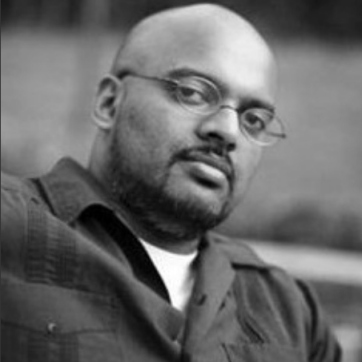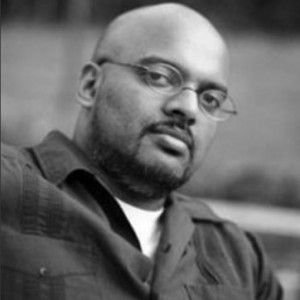
Trayvon Martin and the right to lose faith
(Editor’s Note: This article was written by friend Subhash Kateel for his blog Let’s Talk About It. Subhash has dealt with and researched the issues of this case, including the Stand Your Ground laws, for more than a year now – especially on his Monday night (7 to 8 p.m.) radio program on 880 AM in Miami. The piece is lengthy, but well worth reading. It may be one of the most thoughtful and balanced writings on the Trayvon Martin tragedy I have read to this point.)
********
Trayvon Martin’s murder, his murderer’s acquittal and everything we are seeing unfold now is making me question many things. What is common about common sense? Is reasonable doubt really reasonable? Does great power truly require great responsibility? Is killing people really wrong? But regardless of what side you take on the murder of Trayvon Martin, even if the fact that there are sides to this ordeal personally horrifies me, aspects of this case give everyone a right to question their faith in the system.

Our collective faith should have been shaken much earlier. Over the years we’ve watched as civilians became terrorists, wallets became guns, victims became perpetrators, human beings became aliens and the innocent became guilty in order to justify murder. Few things, however, can shake your faith like an adult murdering a teenager who was walking home from the store.
But faith in the system persists because someone always manages to make excuses for injustice. “Was that 17-year-old child really a victim or a suspect?” “Maybe his murder was justified.” “Even if it was wrong, the law doesn’t say it was illegal.”
In this case, the excuses are based less on facts and more on a faith in pundits, personalities and professionals who have been wrong about virtually everything, from where our money should go to how many carbs we should consume to which country we should go to war with. Yet we entrusted them to tell us how to feel about the murder of a child.
I remember when the case was far simpler. The week the case went public, I remember talking to Floridians from all walks of life who mostly gasped at the horror of a high school student being killed and his murderer not being arrested. Who wouldn’t? Common sense dictated that the killing of a teen was a GOD-awful thing.
Common sense also dictated that a person trying to defend themselves would’ve behaved the opposite of how George Zimmerman behaved the night he killed Trayvon. Ask Vic Grechniew, a firearms instructor from Central Florida who teaches the classes that George Zimmerman would have taken before receiving his concealed weapons permit. “If Zimmerman would have stayed in his car, none of this would have happened,” he told me last year and reiterated again last week on my show. But common sense stopped being common when self-defense started meaning killing someone you were pursuing.
The debate on the reliably notorious Stand Your Ground laws never helped. If anything, it may have harmed the case irreparably. It’s easy to forget now that Stand Your Ground started off as another excuse for injustice and incompetence. It was an excuse used first by the Sanford police department and then the original prosecutor in the case, State Attorney Norm Wolfinger, to explain away improper investigations (e.g. not interviewing witnesses immediately, securing crime scene or testing Zimmerman for drugs or alcohol) as well as the failure to arrest and charge a murder suspect in a state where people have been arrested immediately for letting their pants sag.
What started out as an excuse transformed into a mantra recited over and over again by the debate-o-sphere (even supporters of Trayvon) and imprinted into the minds of everyone, including potential jurors. “George Zimmerman will never do prison time because Stand Your Ground laws gave him the right to kill Trayvon Martin.”
But everyone, even legal experts, were only reading half of Florida’s laws and allowing that half-reading to become conventional wisdom. The central question in this case should have never been whether George Zimmerman had the right to stand his ground on the night he killed Trayvon Martin. Instead, everyone should have asked if George Zimmerman provoked a confrontation with the teen before killing him. If so, then he should have never been able to justify his murder of Trayvon Martin in court.
Even though Florida’s Stand Your Ground provisions are vague, badly written and poorly placed, they have the same exceptions as non-Stand Your Ground states like New York. The law explicitly says that if you provoke an encounter with someone, you cannot claim you are defending yourself unless you are in “imminent danger of death or great bodily harm” AND exhaust every means available to remove yourself from that confrontation.
Because talking heads were busy barely knowing this part of the law exists (except for writers like Alafair Burke) they failed to report one of the biggest injustices in the case; this vitally important exception to claiming self-defense barely made it into the public conversation, the courtroom discussion, the closing arguments or the jury deliberations. In fact it never made it into the jury instructions! Zimmerman’s defense attorneys managed to keep the Florida Stand Your Ground provisions, which they never even brought up in court, in the jury instructions while blocking prosecutors attempt to explain in those instructions that you can’t claim self-defense if you are the “initial aggressor.” What the jury was left to consider was Zimmerman’s right to stand his ground when he killed Trayvon Martin but not his responsibility to avoid provoking a fight with him. If, as Juror B37 told Anderson Cooper, half of the jurors were truly confused about Stand Your Ground but still wished to convict Zimmerman, his fate may have been different had they been correctly instructed on the law.
That wasn’t the only injustice in the courtroom. According to new revelations, the jury wasn’t as “sequestered” as we thought. And while Zimmerman may have been tried before a jury of his peers, Juror B37 never seemed to view Trayvon Martin as her peer. Out of six jurors, none was African American despite the fact that Sanford and Seminole County are 30% and 12% Black respectively. Oddly enough, at least some of the blame for such a melanin-deficient jury rests with the prosecution, who allegedly struck one of the only potential Black jurors from consideration because he watched Fox news.
From the beginning, putting faith in “special” prosecutors, led by State Attorney Angela Corey, meant pinning hopes for justice on someone accused of committing her own share of egregious injustice. To be sure, few people know how to put someone claiming self-defense in prison like Angela Corey. Not only did Corey manage to win a 20-year conviction against Marissa Alexander for shooting at a wall instead of an abusive husband, she also sent 65 year-old army vet Ronald Thompson to prison for 20 years for shooting at the ground (he is now out on appeal). She also made a name for herself trying juveniles as adults. She allegedly did this by overcharging defendants with few resources and little community support for offenses that come with stiff penalties, pushing them into taking a guilty plea and punishing them if they don’t. For example, discharging a firearm in the course of a felony in Florida, even if no one is hurt, unleashes a 20-year mandatory minimum prison sentence.
However, George Zimmerman had a way better legal team, more community support and a far bigger war chest than most people prosecuted by Corey and had zero likelihood of ever copping a plea. By overcharging him with second-degree murder as opposed to manslaughter, which many legal scholars think better reflects what he actually did, Corey’s team put themselves in a position where they had to paint George Zimmerman as a horrible person with evil intent and hate in his heart. If they failed, some juror was bound to sympathize with him and at least one did.
Zimmerman did deserve to be charged with more than murder or manslaughter. It’s not unusual for a defendant in criminal court to be charged with different crimes by different agencies. But the Justice Department, who spent tons of resources investigating George Zimmerman for civil rights violations could have charged Zimmerman more easily for the financial crimes he committed while trying to withdraw the small fortune he made via his legal defense fund from his PayPal account without the Feds and his judge finding out. Even though Zimmerman was caught on tape committing the federal crime called “structuring,” (punishable by five years in prison) it is yet another crime he may walk for.
Only a fool could watch all of this unfold and not lose faith in the system. But we are also losing faith in our own ability to talk to each other about race. The fact is, George Zimmerman made a mistake when he killed Trayvon Martin by assuming that Trayvon was a suspect when he wasn’t. That is something even his defense concedes. There is also no dispute that George Zimmerman is not a Neo-Nazi skinhead. He did disparage “Mexicans” on his old Myspace page but he also spoke out for an elderly Black man who was assaulted after being called the “n” word by a Sanford police lieutenant’s son. But he never needed to be a skinhead or a bad person to make a fatal error that ended a teenager’s life.
All Zimmerman needed was to be a little racist to assume that a kid with a hoodie and skinny jeans “looked” suspicious. The police, who Zimmerman spoke out against previously, only had to be a little racist in believing Zimmerman was a victim who was hit first by Trayvon (no one ever corroborated that “first punch”). The prosecutors only had to be a little racist when deciding not to charge Zimmerman. The jury only had to be a little racist in believing Zimmerman’s fantastic Wild West self-defense scenario more than Rachel Jeantel. And the public only needed a little racism to believe that skinny jeans and a hoodie make a thug.
 The criminal justice system works (or not) by compounding people’s little racisms to create big injustices: the belief that people who smoke crack are worse than the ones who snort coke, that some high school students are mischievous while others are criminal, that witnesses who don’t sound like Anderson Cooper are less credible or that someone who paid their debt to society cannot serve on a jury. Those small assumptions combine to make the criminal justice system profoundly, indisputably and destructively racist. It will remain so as long as good people believe that acknowledging their little racisms makes them horrible people rather than believing that denying those little racisms makes our system horrible.
The criminal justice system works (or not) by compounding people’s little racisms to create big injustices: the belief that people who smoke crack are worse than the ones who snort coke, that some high school students are mischievous while others are criminal, that witnesses who don’t sound like Anderson Cooper are less credible or that someone who paid their debt to society cannot serve on a jury. Those small assumptions combine to make the criminal justice system profoundly, indisputably and destructively racist. It will remain so as long as good people believe that acknowledging their little racisms makes them horrible people rather than believing that denying those little racisms makes our system horrible.
We all suffer the scary consequences of a horrible system. The misapplication of self-defense laws mixed with the misuse of mandatory sentences creates real incentives for people defending themselves to kill so no witness can put them away for 20 years. Hotheads have incentives to pick fatal fights so long as they create a plausible enough reason to claim self-defense. People can be acquitted or convicted based on misreading of the law and misinterpretation by a jury.
But while losing faith in a horrible system makes sense, losing faith in our ability to confront it doesn’t. After the verdict, when cynics expected riots, youth commandeered cars to peacefully occupy the Florida State Capitol. Instead of creating race wars, people created Tumblr pages discussing white privilege. There are several more things we can do to fix the system we should no longer trust.
1. Change the law but change all of it. The push to change laws shouldn’t just prevent more Trayvons, it should prevent more Oscar Grants, Marissa Alexanders, etc. (the list goes on). Despite my doubts about the role of Stand Your Ground laws in the murder of Trayvon Martin, our self-defense laws do have to be re-examined. But that is not enough. No law should give rogue law enforcement officers the power to kill the unarmed and innocent without ever being held responsible. No jury should ever be able to consider the parts of the law that give you the right to defend yourself without considering your responsibility to not provoke violent fights. No prosecutor should ever have more power than a judge to dish out harsh punishments that don’t fit defendants’ crimes. No person who has paid their debt to society should be prevented from serving on a jury.
2. Speak out for Marissa Alexander. There is no reason to have faith in a system that puts a victim of domestic violence in prison for 20 years for shooting a wall but gives a man who decapitates someone a 15-year sentence. No prosecutor who failed to convict Zimmerman while managing to throw several books at Marissa Alexander should spend the last year doubling down on misinformation rather than restoring justice. People that stood up for Trayvon must learn about and start speaking out for Marissa Alexander.
3. Prosecutors must fear voters who believe in justice. In states like Florida, prosecutors (state attorneys) are the most powerful elected position that few people care to vote for. They often have more power than judges and their actions help define how just or unjust the entire system is in their district. A prosecutor that cared about justice and feared their constituents would have charged George Zimmerman immediately, wouldn’t have charged Marissa Alexander at all or would charged her with a crime that wouldn’t carry a mandatory 20-year sentence. Prosecutors across the state that care about justice and fear their constituents would be more likely to investigate corrupt cops and less likely to encourage the school to prison pipeline or the overcharging of defendants. But they will only fear their constituents if we make getting them in and out of office as important as electing a President, Governor or Mayor.
4. We must support fresh faces pushing new ideas. The work being done at the capitol by Dream Defenders and Power U doesn’t just regurgitate talking points. it captures the imagination while creating new conversations. Members of the Florida Rights Restoration Coalition are forcing us to rethink the way we treat returning citizens who have paid their debt to society. Sybrina Fulton is no longer a mother mourning the death of her child, she is actively doing the hard work of standing up for change. The sooner we nourish new ideas the quicker old horrible systems will fade away.
5. We have to start talking and listening to each other. The culture wars that this case created made listening to shock jocks a stand-in for real conversation. A little bit of all of us needs to change for us to restore and rebuild a society we can believe in. Yes we have a right to lose faith in our system but we also have a responsibility to not rest until it is fixed. But fixing it means having faith in our ability to have hard conversations with one another.


